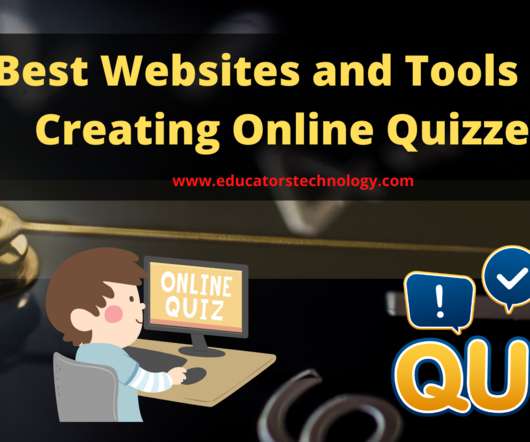The Future of eLearning - 10 Trends To Be Aware Of
ViewSonic Education
JANUARY 24, 2019
Adaptive Learning. Adaptive learning is a style of education where resources, activities, projects, and assignments are tailored to each student’s individual needs. Social Learning. Referred to as gamification, or game-based learning, this facet of eLearning attempts to make education fun!
















Let's personalize your content